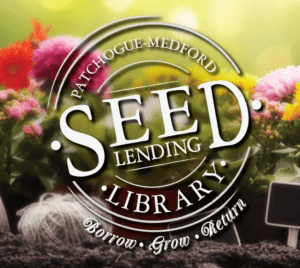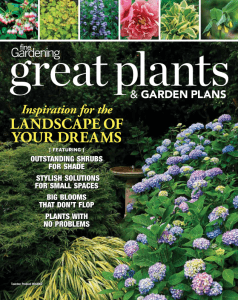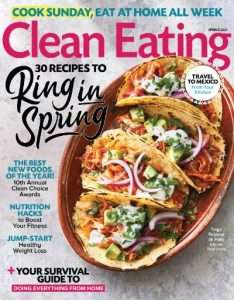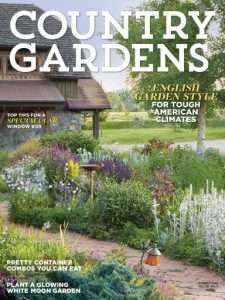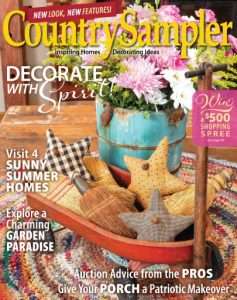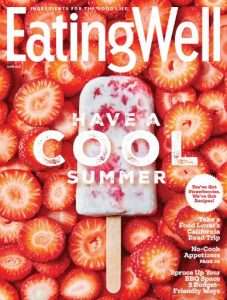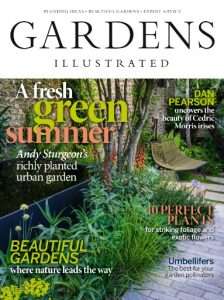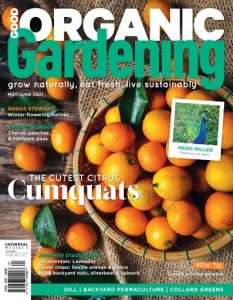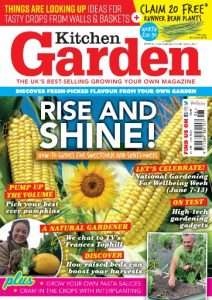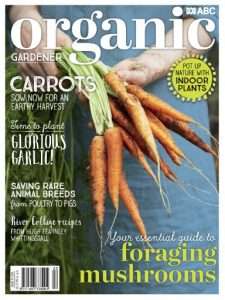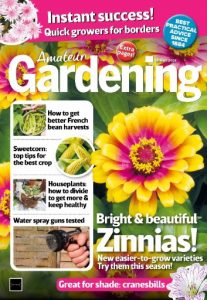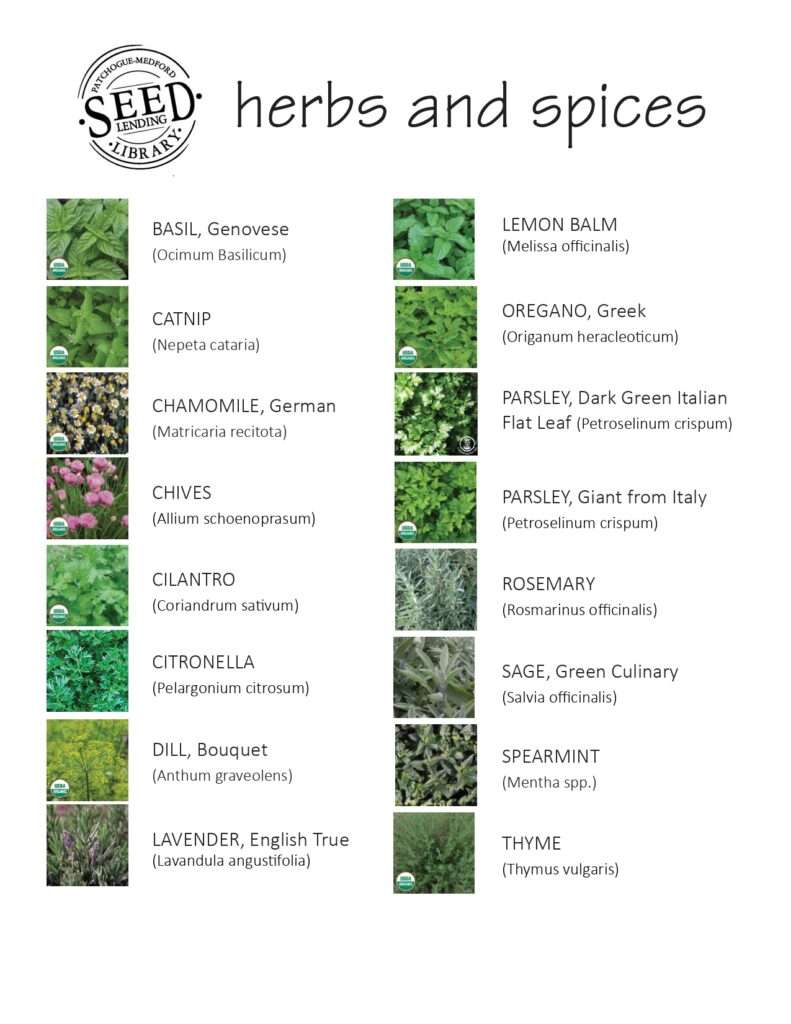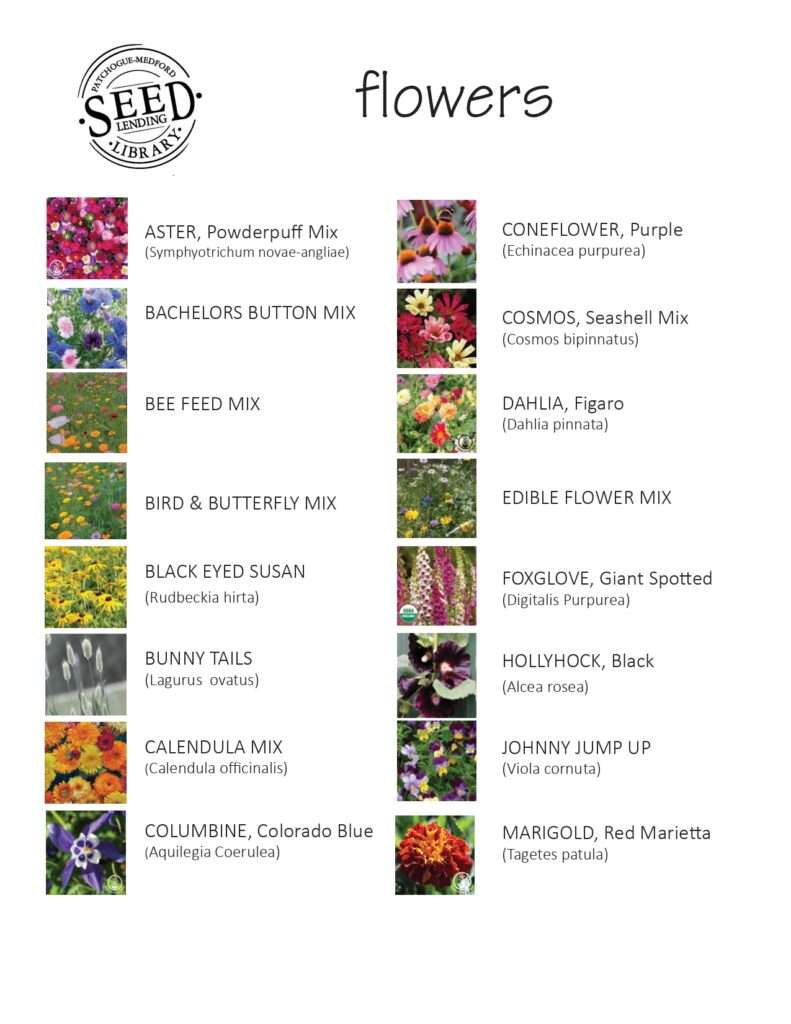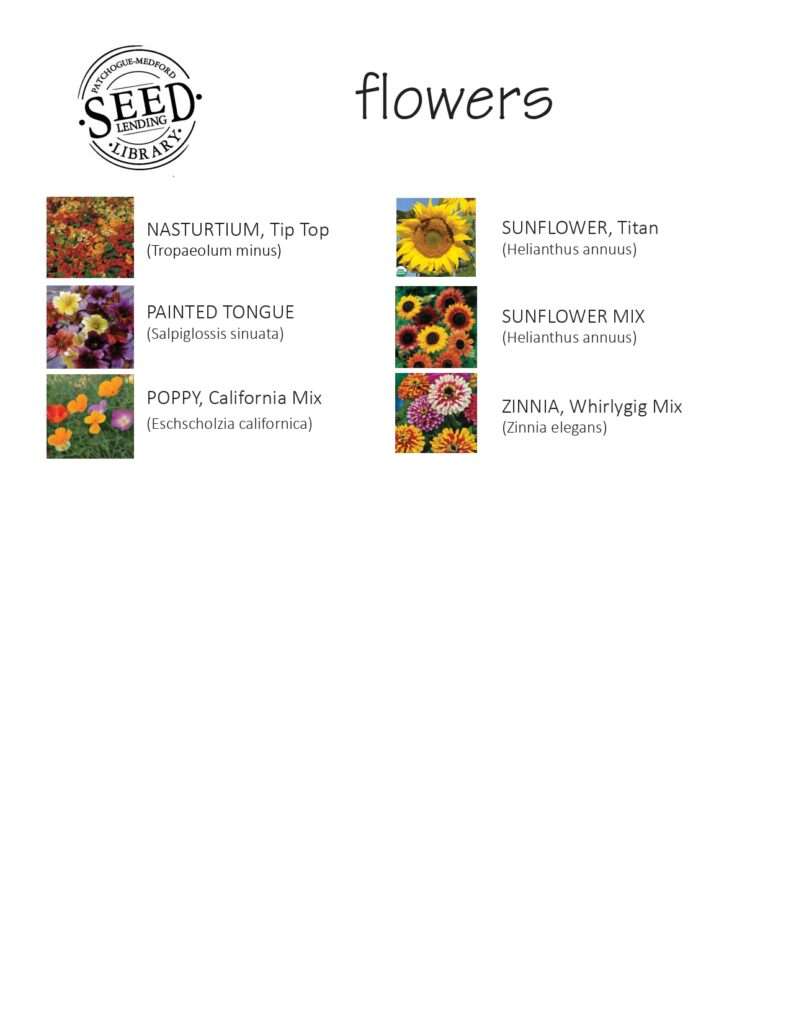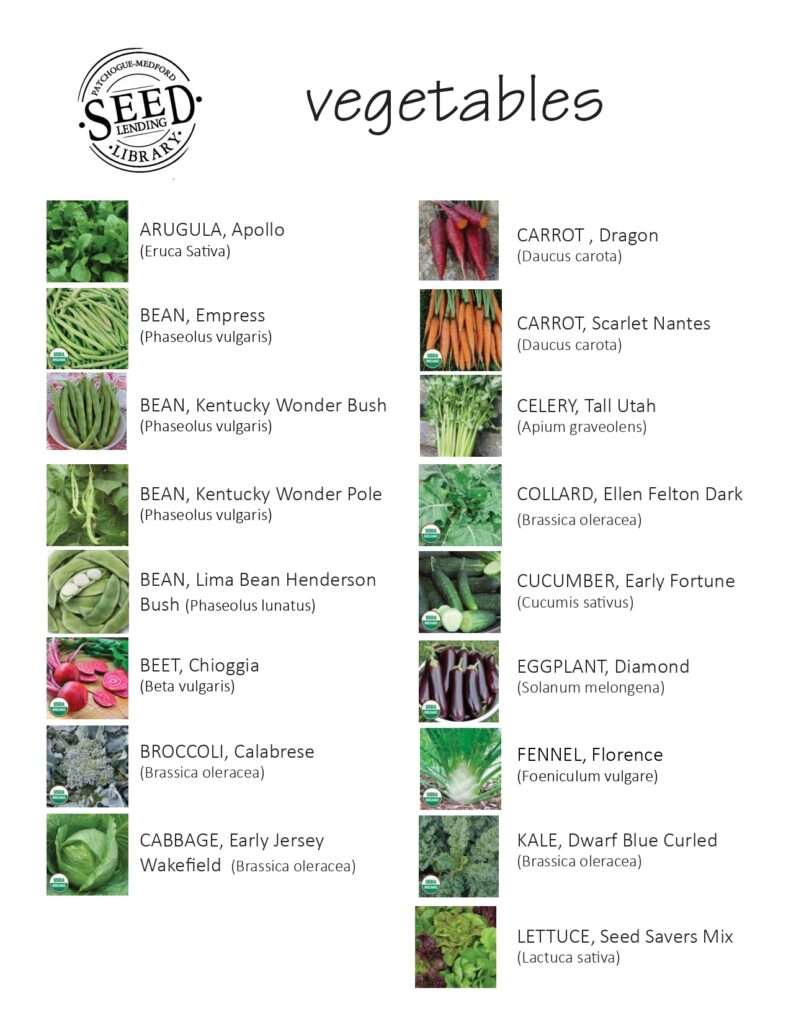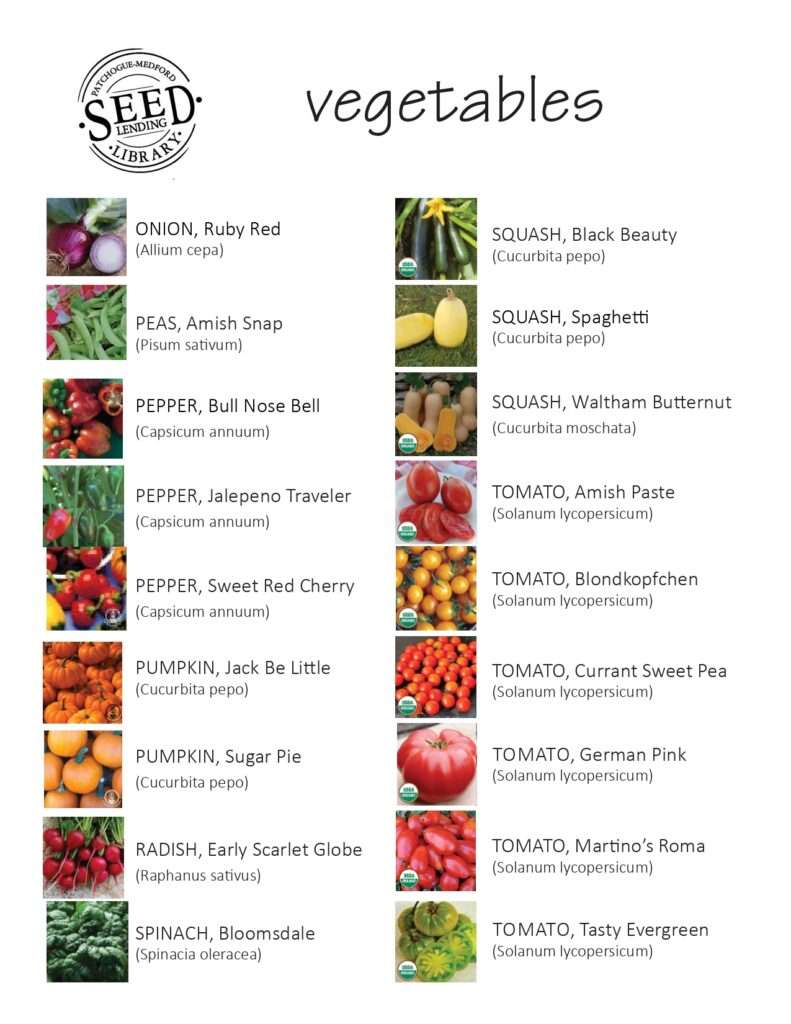Upcoming Gardening and Nature Events

No Kit? No Worries!
There are plenty of seeds included in our regular seed library that can be grown and used as fantastic ice cream flavors.
Use the recipe below to experiment with different herbs. Simply substitute the mint leaves with your chosen herb, steeping it in the heated Half & Half as instructed in the original recipe and get creative!
Grow, Mix, Freeze, Enjoy!
Ingredients
- Half & Half – (1 pint)
- Sugar Packets – (¼ cup)
- Vanilla Javamelts – (5)
- Mint Leaves – (¾ cup)
- Hershey’s Mini Chocolate Bars
- Kosher Salt – (1⁄₃ cup)
- Quart-sized Ziplock Bag
- Gallon-sized Ziplock Bag
- 3-4 cups of ice
Directions
1. Infuse the Mint:
• Combine the Half & Half, sugar, and Javamelts in a saucepan. Heat over medium-low, stirring until the sugar dissolves.
• Add the fresh mint leaves (washed and dried). Gently press or muddle the leaves for a few seconds.
IMPORTANT: DO NOT BOIL THE MIXTURE.
• Remove from heat, cover, and let it cool to room temperature.
• Refrigerate overnight.
2. Strain and Prepare:
• The next day, strain the chilled mixture through a fine-mesh sieve to remove the mint leaves. A few small specks are fine.
• Grate or finely chop the Hershey’s mini chocolate bars. (Refrigerating the bars beforehand makes this easier.)
• In the quart-sized Ziplock bag, combine the mintinfused Half & Half and the chocolate pieces.
IMPORTANT: SEAL TIGHTLY AND REMOVE EXCESS AIR.
3. Create the Ice Bath:
• Fill the gallon-sized Ziplock bag halfway with ice (3-4 cups).
• Add the Kosher salt to the ice. This will lower the freezing
point.
4. Shake and Freeze:
• Place the sealed quart-sized bag inside the gallon-sized bag.
• Seal the gallon bag tightly.
• Shake the bags vigorously for 10-12 minutes. Gloves or a towel are recommended to protect your hands from the cold.
• Check the consistency. If it’s not thick enough, continue shaking for a few more minutes.
5. Serve and Enjoy:
• Scoop the soft-serve ice cream into bowls.
• For a firmer texture, transfer the ice cream to
a container and freeze for a short time.
• Enjoy your homemade treat!
Learn More
Seed Gardening Tips:
- You will want to start most seeds indoors and then plant them outdoors when our zone is clear of the last frost.
- Plant seeds as deep as they are big. For example, a watermelon seed is about 1/4″ long, so plant it 1/4″ beneath the soil. On the other hand, basil seeds are so small you can hardly see them, so plant them on top on the soil, with an ever so slight dusting of soil over the seed.
- Keep all seeds moist. Use a spray bottle to water as to not wash the seeds around the pot.
- Keep all seeds in a sunny spot. If you are lucky enough to have a grow light, even better!
West Coast Seeds has some helpful planting charts for vegetables, herbs, and flowers in New York State.
Cornell Horticulture Hotline: 631-727-4126
Monday-Friday, 9 AM – 12 PM
Call for information about gardening, plants, landscaping, and pests.
For Kids and Families
Pickling Recipes and Tips:
Ingredients
- 2 pounds fresh vegetables (cucamelons, beets, carrots)
- 2 cups white vinegar*
- 2 cups water
- 1 tbsp. kosher salt (or half as much fine sea salt)
- 4-6 three-inch sprigs fresh herb (dill, thyme, green onions)
- 1 tsp. spice blend (coriander, peppercorns, mustard seed)
- Three clean quart jars with lids, one for cucamelons, one for carrots, one for beets
Directions
Trim and slice the vegetables. Carrots cut in spears, no need to cut cucamelons, cut beets into 1” X 1” cubes, or to your desired size.
Combine the vinegar, water, and salt, in a small pot. Bring to a boil and remove from heat.
Pack the vegetables snugly into two clean quart jars. As you work, add the fresh herbs, (that you grew) then add the pickling spices. 1 tsp per jar.
Ladle brine over the vegetables to fill the jar. Seal the jars. Allow jars to cool overnight, and then store in the refrigerator for up to a month.
*For sweeter pickles, use apple cider vinegar
Books, Movies, and More:
eBooks / Audiobooks:
eBooks / Audiobooks on Hoopla:
Films on Hoopla:
Films on Kanopy:
Magazines on Flipster:
Podcasts:
Our Seed Library is About...
- Encouraging our community to dig in and garden
- Reconnecting our community to the traditions of growing tasty, healthy food
- Educating our community about growing, harvesting, and saving seeds
- Creating a community-sustained seed collection at our library
- Nurturing a culture of sharing and abundance
*Know Your Seed!* Our seeds are non-GMO and heirloom varieties. Our seed collection depends on donations, growing success, and seasonal changes.
You can choose from “Easy” “Medium” and “Advanced” seeds. If you’re a beginner gardener, DON’T WORRY about saving seeds right now! Instead, select the seeds that you’re interested in growing. Focus first on having fun and learning to garden. The seed saving part will come later!
All you need is a current Suffolk County library card to join the seed library. Each seed season, each household can select up to 9 seed cards from the card catalog located by the side door in the Main Library. Bring your card selections to the Main Desk to redeem for your seeds. Alternatively, you can reserve your seeds online to be picked up at the Main Desk or be mailed to your home.
Get ready to get dirty and have some fun! Seeds are a genetic goldmine. When we save seeds we’re passing on the genetic qualities of the plant that provided them. “Easy” seeds are great for beginner gardeners who are ready to save seeds. The perfect flowers from “easy” plants are self pollinating and not likely to cross-pollinate between plants. “Medium” and “Advanced” seeds require special planning. If you’re a more experienced gardener growing plants for seed saving, you’ll want to choose “Medium” and “Advanced” seeds after learning how to isolate plants to prevent cross-pollination.
Again…*Know Your Seed!* Do not save seeds from a hybrid variety (often labeled as “F1” in catalogs or seed packets). They will not grow “true to type” to the original parent, and the next generation of plants will be highly unpredictable in overall type, quality and flavor.
Collect seeds from your healthiest or tastiest crops. Be sure to set aside some seeds for yourself!
Seed-saving envelopes are available at the Main Desk, or you can print your own. Place some seeds in clearly labeled envelopes – please fill out the label with as much information as possible. The more information that you provide, the better we can track the success of our local seed stories.
Bring your labeled seeds to the Main Desk. And keep gardening!



